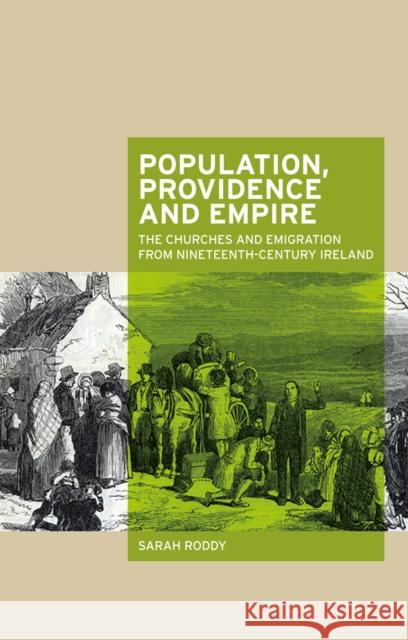Population, Providence and Empire: The Churches and Emigration from Nineteenth-Century Ireland » książka
Population, Providence and Empire: The Churches and Emigration from Nineteenth-Century Ireland
ISBN-13: 9780719090196 / Angielski / Twarda / 2014 / 288 str.
Over seven million men, women and children left Ireland over the course of the nineteenth century. This book is the first to put that huge population loss in its religious context, by asking how the Irish Catholic, Anglican and Presbyterian churches responded to mass emigration. Did they facilitate it, object to it, or limit it? Were the three Irish churches themselves changed by this demographic upheaval?
Comprising a fresh focus on the effects of emigration on Ireland rather than its diaspora, and merging two of the most important phenomena in the story of modern Ireland - mass emigration and religious change - this study offers new insights for both nineteenth-century Irish history and historical migration studies in general.
The book explores in turn the churches' social and economic thought in relation to emigration, the practical involvement of clergy in departures, the missionary endeavours of each church as they related to emigrants, the key role that emigration played in intensifying sectarian rivalry at home and the place of emigrants in the churches' 'imperial' ambitions.
Based on a large body of previously unused and underexploited archival and printed sources from all over Ireland and beyond, and employing the analytical techniques of, variously, economic, religious and cultural historians, the book examines the extent to which the churches were able to influence emigration and the extent to which their development was itself influenced by it. It concludes that, on balance, emigration determined the churches' fates to a far greater extent than the churches determined emigrants' fates.











